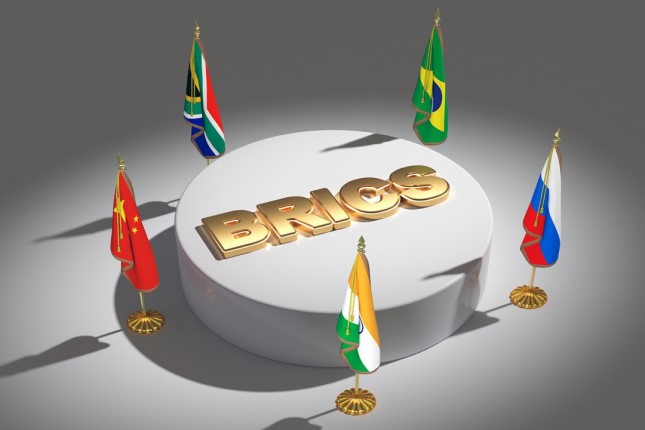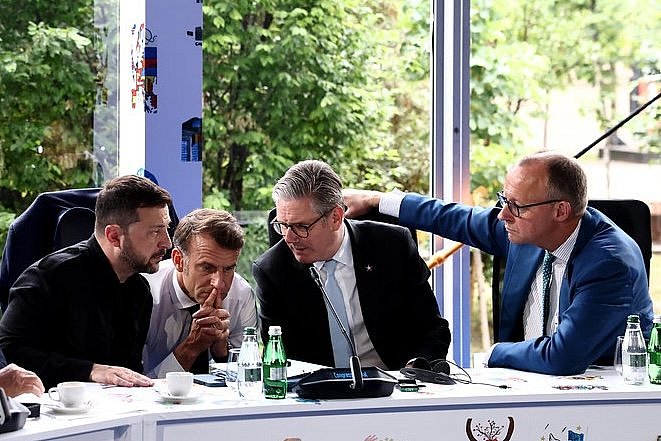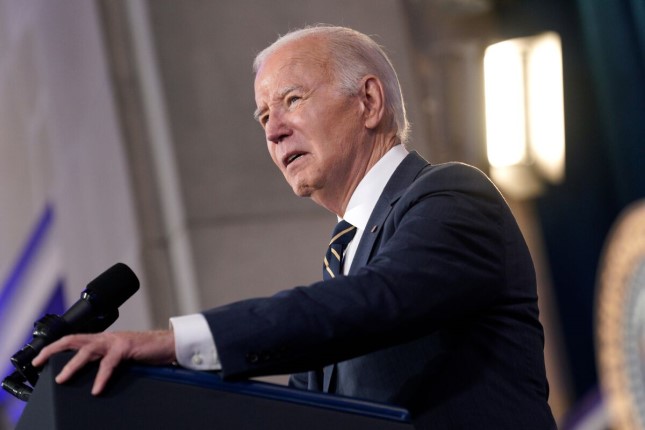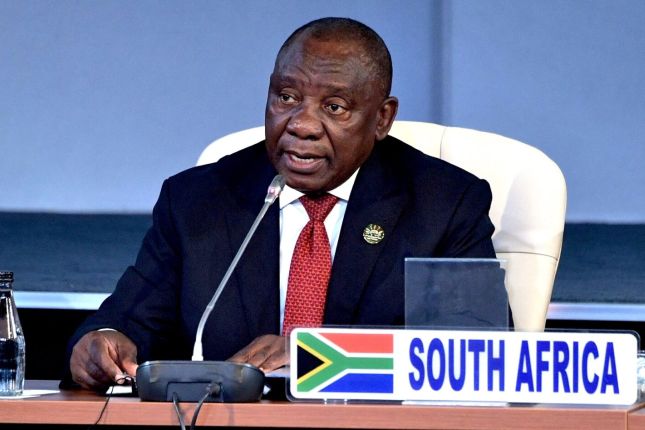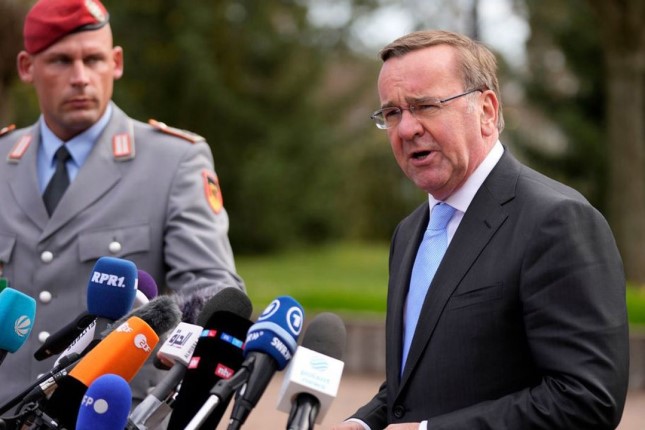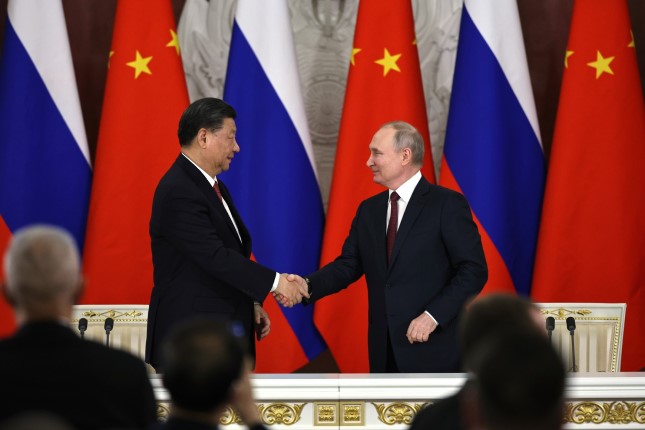Cyber security as well as other threats in traditional and non-traditional security fields have taken the spotlight at the ongoing meetings of BRICS countries in Johannesburg, South Africa, as analysts said that amid growing global uncertainties, more developing countries are seeking to improve solidarity to jointly tackle challenges to their development under the auspices of the BRICS mechanism.
While attending the 13th Meeting of BRICS National Security Advisers and High Representatives on National Security in Johannesburg, South Africa on Tuesday, senior Chinese diplomat Wang Yi said that after more than 10 years of development, the BRICS has become an important platform for emerging market countries and developing countries to unite and self-development.
Under the new situation, we must grasp the future development direction of the BRICS countries, further strengthen political mutual trust and strategic coordination, continue to provide international public goods that meet the requirements of the times, and strive to translate the BRICS spirit of openness, inclusiveness, and win-win cooperation into practical actions, and polish the "golden brand" of BRICS cooperation, Wang said.
To deal with the current global security challenges and solve the security dilemma, Wang also called for countries to resist unilateralism, hegemony and oppose "decoupling" and "double standards" and oppose Cold War mentality and zero-sum game.
Analysts said that the ongoing meetings for security advisors and senior diplomats from BRICS countries and "Friends of BRICS" underscored the security concerns of developing countries and new emerging economies over the destructive activities, "color revolutions" and cyber attacks plotted by some countries who have posed great threats to the stable development of developing countries and global peace.
Aside from expressing their concerns over traditional and non-traditional security fields, BRICS countries and developing countries are seeking to improve solidarity to jointly tackle development challenges under the BRICS mechanism, which will also be part of the build-up to the15th BRICS Summit in South Africa to be held from August 22 to 24, they noted.
On Monday, a meeting, which was held under the theme of "Cyber security is increasingly becoming a challenge for developing countries," is also being attended by Minister in the Presidency of South Africa Khumbudzo Ntshavheni, Chief Adviser of the Presidency of Brazil Celso Luiz Nunes Amorim, Secretary of the Security Council of the Russian Federation Nikolai Patrushev, National Security Adviser Ajit Doval of India and representatives of Belarus, Iran, Saudi Arabia, Egypt, Burundi, the United Arab Emirates, Kazakhstan, Cuba and other countries.
Security concerns under spotlight
During the Tuesday meeting, Wang, member of the Political Bureau of the Communist Party of China (CPC) Central Committee and also director of the Office of the CPC Central Commission for Foreign Affairs, said that the "Global South" is a collection of emerging market countries and developing countries, reflecting our collective rise on the international stage. Countries in the "Global South" face the important mission of resisting the external intervention and maintaining political security and regime security.
Wang Yi said that unity is strength, action is direction, and openness is motivation. China is willing to work with BRICS partners to support each other's efforts to maintain national security and stability, and to carry out more practical cooperation in dealing with international security challenges, so that the world can hear more BRICS voices and witness a greater role of the BRICS.
Senior officials on security from BRICS countries also exchanged in-depth views on issues such as current security challenges, anti-terrorism and cyber security, food and water security, and energy security, and reached broad consensus, according to a release from Chinese Foreign Ministry.
The issue of cyber security has been discussed at length at the ongoing BRICS meeting as some Western countries have intensified using the internet to conduct destructive activities in other countries, including inciting domestic riots, fooling the public or organizing cyber attacks on governmental departments, which have posed threats to developing countries' stability and development, Song Zhongping, a Chinese military expert and TV commentator, told the Global Times on Tuesday.
The meeting on security, together with other meetings in various fields, will lay the groundwork for the leaders' summit in August, as the BRICS mechanism is a cooperative mechanism beyond economic and security fields, and whether it is regarding traditional or non-traditional fields, it would safeguard development and cooperation in other areas, Song said.
This year's BRICS summit will focus on improving cooperation between BRICS members and African countries in technology, economy and other fields, and security would also be the basis for cooperation, said Song.
South Africa has invited the heads of state of all African countries to the summit, which is themed as "BRICS and Africa: Partnership for Mutually Accelerated Growth, Sustainable Development, and Inclusive Multilateralism." The summit is anticipated to discuss how BRICS countries can better work with African countries, media reported.
Security is the core concern for the financial cooperation of BRICS countries and other developing countries. This is also why BRICS countries are studying the potential use of alternative currencies to the US dollar, analysts said.
For the past months, many media, especially those from the West and the US, have reported that BRICS countries are seeking to shift from the dollar in mutual trade to avoid becoming "victim" to sanctions. For example, in April, Bloomberg reported that Brazilian President Luiz Inacio Lula da Silva called on BRICS countries to come up with an alternative to the dollar in foreign trade.
South Africa, the BRICS chair, has put the stability of the global financial system as a priority for the BRICS meetings, as BRICS countries and developing countries have been put in an unfavorable position that would be affected by global financial hegemony, Wang Lei, director of the Center for BRICS Cooperation Studies at Beijing Normal University, told the Global Times.
However, de-dollarization is not the core mission of BRICS countries and what they want is to make the global financial system fairer and more inclusive, and to better reflect the major changes that have happened in the global governing system, Wang Lei said.
Against the backdrop of the continuous Russia-Ukraine conflict and drastic global changes unseen in a century, developing countries are seeking to inject more stable and secure impetus to the world and to promote the international governing system to be more inclusive and better reflect their interests. However, the US and some Western media have smeared their efforts, analysts said.
What BRICS countries are working toward is not to compete with the US for its hegemony, but to build a multipolar world in which each country's concerns on security, economy and developments can be respected by others - this may also be the reason for the US and West's increasing worries of the growing influence and attractiveness of BRICS, Song said.
Source: The Global Times.
